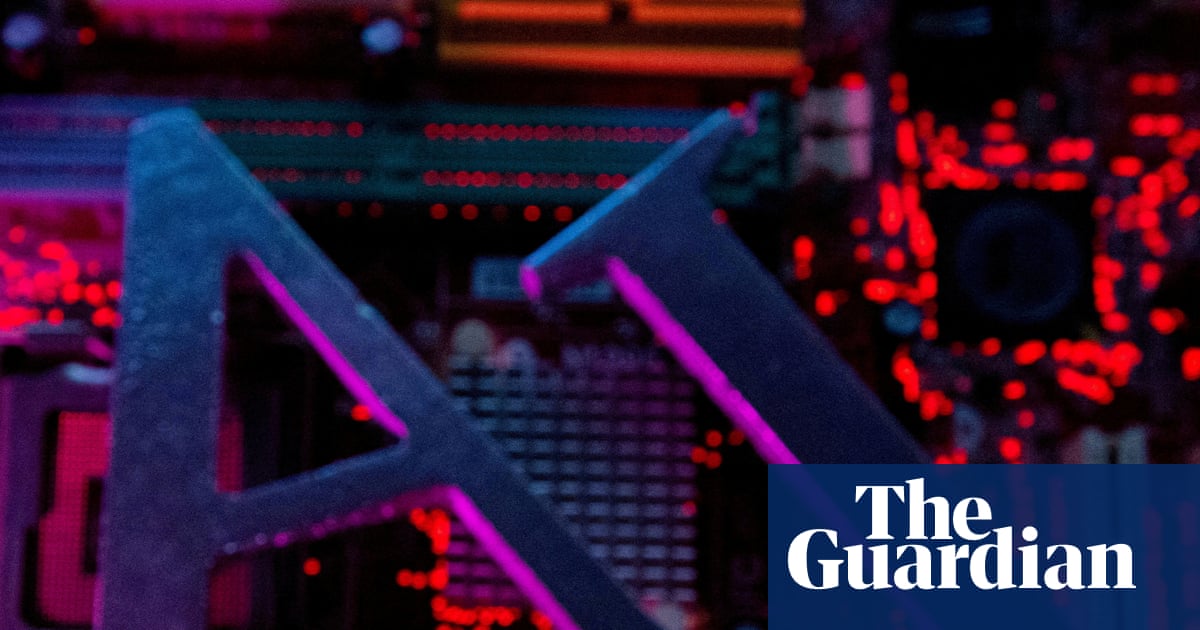A leading British tech investor has described soaring valuations of artificial intelligence companies as “disconcerting”, amid concerns of an AI stock market bubble.
James Anderson was an early backer of Tesla, Amazon and China’s Tencent and Alibaba, generating vast returns for Baillie Gifford’s flagship fund. Now at the Italian investment company Lingotto, Anderson said he had not seen signs of an investment bubble until recently, when the ChatGPT developer, OpenAI, and its rival Anthropic announced hefty valuation increases.
“Up until the last couple of months or so … what surprised me in one sense is that there wasn’t really much sign of a bubble [in AI],” he told the Financial Times.
OpenAI is reportedly in talks about a share sale that would value the startup at $500bn (£370bn), up from $300bn in April and $157bn last October. Anthropic almost trebled its valuation recently, going from $60bn in March to $170bn last month.
“I think one needs to be honest that those sudden increases [in valuation] that people were willing to place on OpenAI, Anthropic and the like were disconcerting,” he said. “That scale of jump and the pace with which it happened did bother me.”
Anderson also raised concerns about Nvidia’s investment of up to $100bn in OpenAI. Nvidia is a key player in AI infrastructure as a maker of the computer chips that are used in training and operating AI models, a position that has driven it to a stock market valuation of $4.5tn. Under the terms of the deal, OpenAI will pay Nvidia in cash for chips, and Nvidia will invest in OpenAI for non-controlling shares.
Some commentary around the deal has raised parallels with vendor financing, where a company provides financial support to a customer buying its products.
Anderson said he was a “huge admirer” of Nvidia but the OpenAI deal presented “more reason to be concerned there than before”.
Referring to a practice common in the turn-of-the-millennium dotcom bubble, when telecom equipment makers lent money to customers, he said: “I have to say the words ‘vendor financing’ do not carry nice reflections to somebody of my age.
“It’s not quite like what many of the telecom suppliers were up to in 1999-2000 but it has certain rhymes to it. I don’t think it makes me feel entirely comfortable from that point of view.”
Anderson is the managing partner of Lingotto’s innovation strategy fund. Lingotto is owned by the Agnelli family, which controls Ferrari, Juventus FC and the Economist.
Nvidia and OpenAI were approached for comment.
Some investors are also concerned that stock market valuations may be approaching bubble territory, driven by enthusiasm over AI.
Wolf von Rotberg, an equity strategist at J Safra Sarasin Sustainable Asset Management, warned on Tuesday that US equities looked “increasingly bubbly”, having rallied strongly from their lows in April after Donald Trump launched his trade war.
after newsletter promotion
“Much of the rebound has come on the back of a very favourable narrative around AI and a corresponding ramp-up of investment spending. While there is no clear definition of a bubble, parallels to previous periods of exuberance can be drawn.”
“Current valuations are not too far off the dot-com highs in the early 2000s. Similarly, credit markets are trading at risk spreads that are close to the lows over the past 25 years,” said von Rotberg.
The City consultancy Capital Economics said the rally had further to run, though. “It’s hardly surprising there is renewed talk of a stock market bubble in the US with the S&P 500 back near a record high.
“Even so, we wouldn’t be surprised if the index ended this year above our current forecast of 6,750 and made further gains in 2026 as the hype around AI continued to build,” it told clients this week.
The Deutsche Bank Research Institute has said that the number of web searches for “AI bubble” has plummeted in the past month, according to Google Trends.
“One AI bubble has already burst – the bubble in saying there’s a bubble,” it said.










